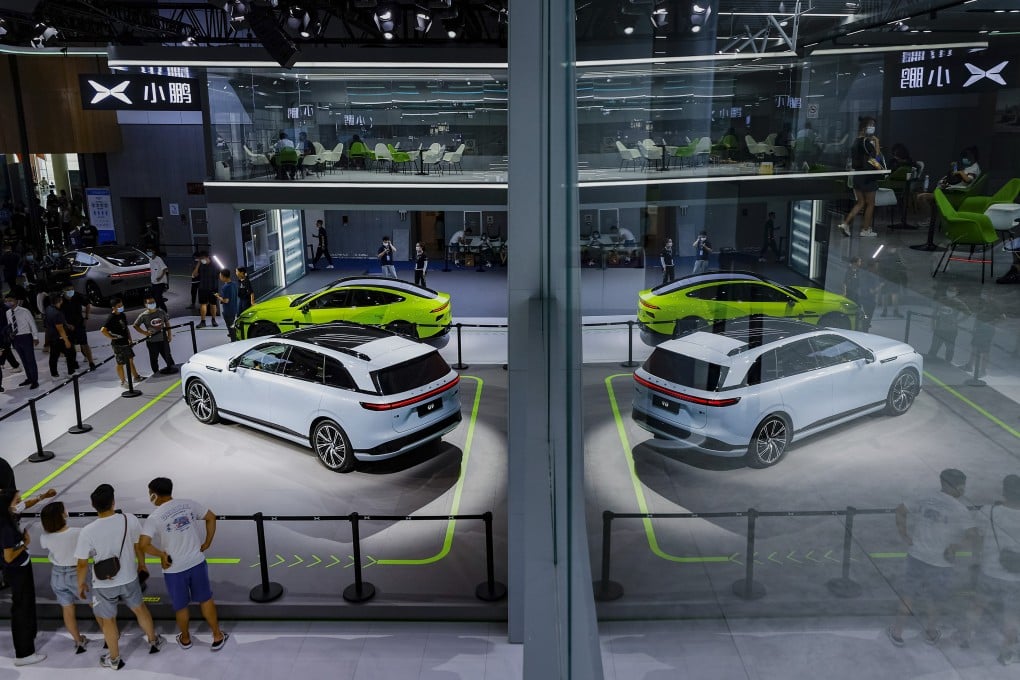Chinese EV start-up Xpeng seeks European expansion, expects half of sales in 2025 to come from overseas markets
- Europe has welcoming policies and an open market, making it easier for Chinese brands to compete, Brian Gu, Xpeng’s vice-chairman and president, says
- Gu says chip shortage will ease slowly with Chinese alternatives emerging, but supply will not fully return to normal until mid 2023

The Guangzhou-based carmaker, which went public in Hong Kong and New York in 2020, has global ambitions and plans to expand further in Europe.
“If we do it successfully, most of our future sales will come from international markets, maybe half,” he added, without giving a specific timeline for achieving this goal. “Europe has welcoming policies and an open market, making it easier for Chinese brands to enter.”
US-China tensions continue to affect Chinese companies, which have long been reliant on America for chips and key technologies. For instance, Washington imposed fresh restrictions targeting China this week, according to chip designer Nvidia. It has moved to stop the export of two top computing chips for artificial intelligence work to China, which could cripple Chinese firms’ ability to carry out advanced work like image recognition, which is crucial for self-driving technology.
Under the “Made in China 2025” industrial strategy, Beijing wants its top two EV makers to sell 10 per cent of their total cars abroad by 2025. It did not specify which companies.
